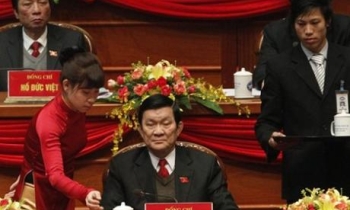Two new pieces of legislation in the United States will help protect reporters' sources and promote Internet freedom. The US House of Representatives approved a legislation on October 16 that would bolster reporters' ability to keep their sources confidential in federal court cases.
PEN American Centre said it was elated by the overwhelming (398-21) House vote, calling the Free Flow of Information Act of 2007 (FFIA) "an essential clarification" of journalists' right to protect sources. A week later, Reporters sans Frontières (RSF) hailed the House of Foreign Affairs Committee's approval on the Global Online Freedom Act, which would prevent US Internet companies from collaborating with repressive governments.
"With more reporters facing prosecution for protecting the identities of confidential sources, the US has been teetering on the brink of joining PEN's list of countries that routinely jail journalists," said Larry Siems, Director of Freedom to Write and International Programs at PEN American Centre. “The FFIA is a giant step back from that dubious, dangerous position, and we are grateful to the entire membership of the House for its overwhelming support for this crucial legislation.â€
The Bill would, for the first time, extend shield protections already in effect in thirty-three states and the District of Columbia to the federal level. Under the Bill, reporters cannot be forced to testify in criminal cases or disclose source information in court except in cases of a specific threat to national security or when the information is necessary for the prosecution or defence of the case and cannot be obtained by any other avenue.
The American Civil Liberties Union (ACLU) said the FFIA would lessen the chances of reporters being arrested or intimidated for their reporting, particularly when using government sources. However, ACLU expressed disappointment with the version of the FFIA passed by the House.
Amendments to the Bill have added exceptions that will limit the public’s access to information even in cases where there is no tangible threat to national security or public safety. Under an adopted amendment, a court may consider alleged harm to national security even in cases where the information provided to a journalist is not "properly classified."
The Bill also gives the administration some discretion to decide who qualifies for the privilege. Under the exceptions added to the Bill, the administration can arbitrarily designate a journalist as a "terrorist" based solely on unsubstantiated evidence of their alleged association and speech. In the past, some administration officials have publicly acknowledged that the laws authorising terrorist designations are overbroad in covering individuals and groups who pose no threat to national security.
President George W Bush has stated he would veto the FFIA, but the voting margin among Representatives was enough to override a veto. Testifying before the Senate, Attorney-General designate, Michael B Mukasey said he, too, opposed the measure.
PEN American Centre said it hoped an expanded version of the Senate Bill will come to a final vote this year. A Senate Judiciary Committee approved a parallel, though slightly narrower, Bill on October 4. They will be working with other free expression and press freedom organisations to expand the scope of the Senate version and bring it to a vote this year.
The other bill, the Global Online Freedom Act, would ban US companies from locating servers containing personal data in territories controlled by repressive governments. The Bill, which would protect users' anonymity from unauthorised disclosure, will now go to the House Committee on Energy and Commerce.
US companies Yahoo, Google and Microsoft have been criticised for agreeing to censor themselves in China, while Cisco Systems is accused of providing China with online censorship technology. Four cyber-dissidents have been convicted and jailed because of information supplied by Yahoo.









